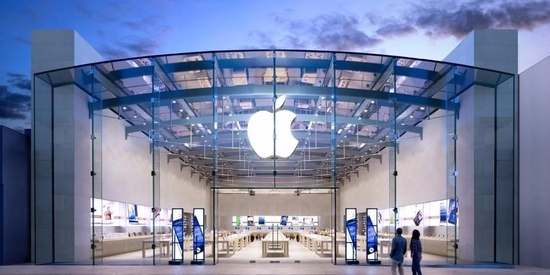your current location is:Home > TechnologyHomeTechnology
Apple executives talk about iPhone 14 Pro/Max smart island design in new interview: iPhone X's first major operational change in five years
In a new interview, Craig Federighi, Apple's senior vice president of software engineering, and Alan Dye, Apple's vice president of human interface design, discussed the idea behind the iPhone 14 Pro's Smart Island and how it was developed .

IT House has learned that in an interview with the Japanese magazine Axis, Craig Federighi, who is in charge of iOS development, said that Smart Island represents the iPhone's first major user experience change since the iPhone X five years ago.
"This may be the first major operational change in the five years since the iPhone X came out. Five years ago, the iPhone X removed the physical Home button, which fundamentally changed how the iPhone operates in various ways, such as how to unlock the lock screen and how to return to the home screen. The screen, how to switch apps. This new feature also changes the look of the iPhone, and it made me think again about how to run multiple apps, notifications, and how to manage ongoing behavior in the background. For us, it's about taking what's happening on the iPhone It was a very exciting challenge to integrate into this small interactive place."
Alan Dye, who introduced Smart Island at Apple's "Ahead Look" event last month, said Smart Island further blurs the lines between where hardware ends and software begins on the iPhone, a vivid example of "Apple-style development."
"Our hardware and software partners will be working together on this issue in the same studio for a common purpose. The new feature also makes it possible to display alerts, notifications and ongoing operations in real time, eliminating the need for communication between hardware and software. Boundaries. I think it's a good example of Apple-style development."
Talking about where the idea for the Smart Island came from, Alan Dye said that since the TrueDepth camera system is smaller, the team thought about what the extra space at the top of the display could be used for.
"At Apple, it's very difficult to trace the origin of an idea. Because our work is based on huge discussions with different groups. One of the discussions is that if the sensor area on the screen is made smaller, the remaining space can be What to do. It's not an argument that has come up in the past year or so, but it's one of those topics that has been discussed for many years."
The status bar area is a small but vital part of the iPhone experience, says Alan Dye. "This is an area where we put our hard work on every pixel and have a very large impact," Dye said. "So here's a story about doing something more special in this area. Something very elegant, but also very useful".
“To make this experience feel so smooth and natural, we refreshed the meticulous care and skill from both the design and engineering. Our goal is to make the user forget that there is static physical hardware and think that the whole thing is fluid, like a dynamic software."
Craig Federighi pointed out that there was a palpable sense of surprise when the Smart Island was first revealed during the launch of the iPhone 14 Pro at an event held at the Steve Jobs Theater at ApplePark, and he said he had the same reaction when he first saw it inside. . "Personally, I feel like I've had a new lease of life with my iPhone," Craig Federighi said. "It's very refined animation, but it's a little different than anthropomorphic, but I think it gives the iPhone a new strong personality and energy."
Since its launch, the "Smart Island" has received positive responses from some users and customers online, with some calling it one of Apple's best designs in years. Some Android makers may also be looking to replicate the Smart Island experience on their smartphones.
related articles
Article Comments (0)
- This article has not received comments yet, hurry up and grab the first frame~













